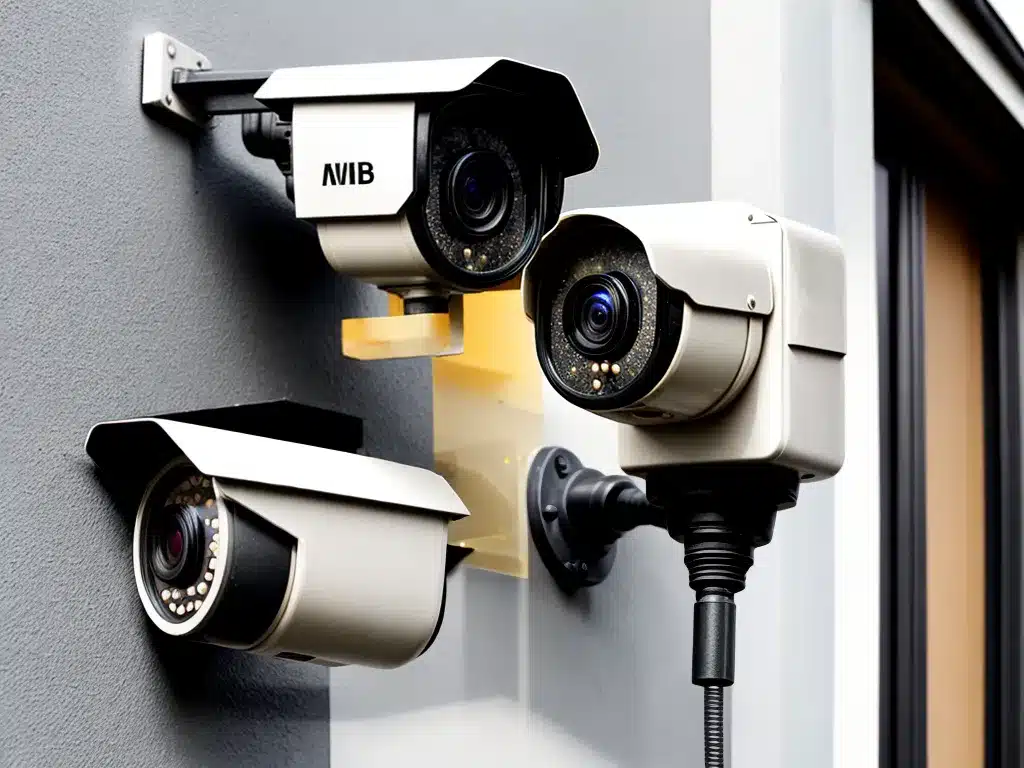
Introduction
Home security cameras have become incredibly popular in recent years. They provide peace of mind by allowing you to monitor your home remotely and record video footage if an incident occurs. However, many homeowners don’t consider what happens to the recorded video footage after the fact. Should you backup your home security camera footage? There are pros and cons to doing so. In this article, I’ll explore both sides of the debate to help you make an informed decision.
Reasons to Backup Footage
Here are some of the top reasons why backing up your home security camera footage could be beneficial:
Evidence for Insurance Claims
If your home is broken into or damaged, recorded video footage could help support an insurance claim. Backed up footage gives you physical evidence to show your insurance company. For example, if an intruder broke your front door, the video could document both the break-in and the damage done. This helps strengthen your claim.
Protection Against Camera Failure
Like any electronic, home security cameras can malfunction or fail over time. If the camera’s storage is corrupted or damaged, any footage stored on the camera itself could be lost forever. Backing up footage provides redundancy in case of failure.
Review Past Incidents
Backups allow you to save and archive footage you might want to review later. For instance, if your home was vandalized last year, being able to pull up the old security footage could help aid police now. It gives you long-term access instead of footage getting automatically overwritten after a certain number of days.
Absence of Cloud Subscription
Some home security cameras rely on cloud storage subscriptions to backup footage. If you cancel the subscription, you lose access. With your own local backups, you aren’t dependent on keeping up with monthly cloud storage fees. The footage remains yours indefinitely.
Reasons Not to Backup Footage
Here are some potential downsides to consider about backing up home security camera footage:
Storage Space Needed
Backing up continuous video footage from multiple cameras can consume substantial storage space over time. For a single camera recording 24/7, you may need 4-5 terabytes (TB) of storage for a month’s worth of backups. Multiply by additional cameras.
Labor Intensive to Manage
Backups don’t run themselves. You’ll need to spend time regularly connecting external hard drives, configuring backup jobs, and monitoring them. Backups that run continuously are more prone to failure. It’s a system you’ll have to actively manage.
Security/Privacy Risks
Once footage is backed up from your camera system, the data is now also living on a computer or hard drive that could be accessed, hacked, or stolen. It introduces new potential security and privacy risks. Encryption helps but isn’t foolproof.
Infrequent Need to Review Footage
With smart motion alerts and remote access through your phone, you can review live footage anytime. Revisiting old footage is only needed on rare occasions (e.g. a break-in). For some, occasional access outweighs the hassle of 24/7 backups.
Tips for Backing Up Home Security Camera Footage
If you do decide to backup your home security camera footage, here are some tips to do it successfully:
-
Use an external hard drive – Avoid relying on cheap SD cards or flash drives which can fail. Use an actual desktop external hard drive with ample capacity.
-
Automate backups – Configure backup software to automatically transfer new footage on a schedule rather than manually copying files.
-
Encrypt footage – Encrypt video files during transfer and storage to add an extra layer of security on backed up data.
-
Test restores – Occasionally restore sample files from backups to different devices. Verify the process works when needed.
-
Store offsite – Keep a copy of backups offsite in case of fire, theft, or other disaster. A bank safe deposit box works well for offsite storage.
My Take: Case-By-Case Basis
In the end, I believe the decision to backup home security camera footage comes down to evaluating your specific needs:
- How critical is keeping long-term recordings?
- Do you have bandwidth caps or limitations to consider?
- Are you willing to manage the backup process?
- Do you have adequate physical storage space?
For high-risk homes or businesses, backups are likely worthwhile for added evidence and protection. For low-risk residences with fewer cameras, the benefit may be less significant. Assess your personal priorities and resources to decide if investing in backups makes sense. Treat each case individually.
Conclusion
Backing up home security camera footage has definite benefits but also carries real costs and risks. Carefully weigh the pros and cons relative to your needs. Follow storage and encryption best practices if pursuing backups. And consider economizing by only backing up select critical footage rather than everything. With judicious selection, you can craft an appropriate backup strategy.












